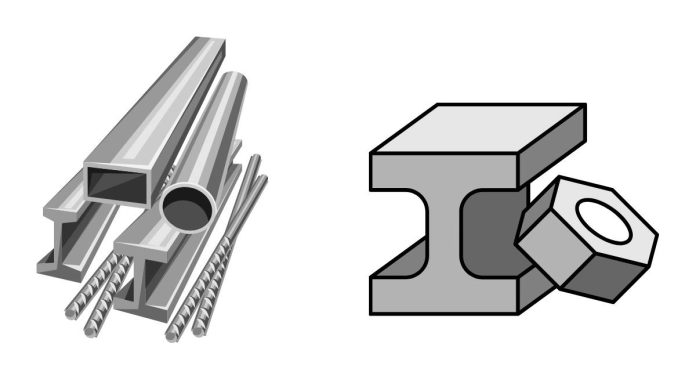Metals vary in their hardness, which is the resistance of a material to deformation, scratching, or abrasion. The softness of a metal is determined by its position in the Mohs hardness scale and its ability to be deformed easily. While the Mohs scale is more commonly used for minerals, the relative softness of metals is also determined by how easily they can be deformed or scratched by other materials.
Here’s a list of the ten softest metals, along with details about their characteristics:
1. Lithium (Li)
- Hardness: 0.6 on the Mohs scale.
- Properties: Lithium is the lightest metal and is very soft and can be cut easily with a knife. It is highly reactive, especially with water, and is used in batteries and some alloys.
- Uses: Lithium is primarily used in rechargeable batteries, such as those in mobile phones and electric vehicles, and in metal alloys for aircraft.
2. Sodium (Na)
- Hardness: 0.4 on the Mohs scale.
- Properties: Sodium is a very soft metal, similar to lithium, and can be easily cut with a knife. It reacts vigorously with water to form sodium hydroxide and hydrogen gas.
- Uses: Sodium is used in various chemical processes, such as soap making, glass production, and in the form of sodium vapor lamps for street lighting.
3. Potassium (K)
- Hardness: 0.4 on the Mohs scale.
- Properties: Potassium is another highly reactive alkali metal that is soft enough to be cut with a knife. It is similar to sodium but slightly softer.
- Uses: Potassium is used in fertilizers, as potassium salts, and in certain chemical reactions, particularly in the production of potassium hydroxide.
4. Calcium (Ca)
- Hardness: 1.5 on the Mohs scale.
- Properties: Calcium is a soft, reactive metal that can be easily cut with a knife. It is more reactive than magnesium but less so than alkali metals.
- Uses: Calcium is important in the construction industry (as calcium carbonate in limestone), in fertilizers, and in the production of cement and steel.
5. Magnesium (Mg)
- Hardness: 2.5 on the Mohs scale.
- Properties: Magnesium is a soft, silvery-white metal that is lightweight and has a relatively low hardness. It is one of the lightest metals used in industrial applications.
- Uses: Magnesium is used in lightweight alloys (e.g., in aerospace and automotive industries), as well as in the production of fireworks and flares.
6. Aluminum (Al)
- Hardness: 2.75 on the Mohs scale.
- Properties: Aluminum is soft compared to many other metals, and while it is still stronger than some alkali metals, it is relatively easy to shape and mold. It is also lightweight and has excellent corrosion resistance.
- Uses: Aluminum is widely used in the manufacturing of cans, foils, aircraft, automotive parts, and as a conductor of electricity.
7. Zinc (Zn)
- Hardness: 2.5 on the Mohs scale.
- Properties: Zinc is a relatively soft metal that can be easily bent. It is not as soft as alkali metals but still has a lower hardness compared to other metals like iron or copper.
- Uses: Zinc is commonly used in galvanization (coating iron or steel to prevent rust), batteries, and as an alloy with copper to make brass.
8. Lead (Pb)
- Hardness: 1.5 on the Mohs scale.
- Properties: Lead is a very soft and dense metal that can be easily scratched and deformed. It has been historically used in construction and in lead-based paints, though its use has declined due to toxicity concerns.
- Uses: Lead is used in batteries (such as in lead-acid car batteries), shielding against radiation, and in various alloys.
9. Tin (Sn)
- Hardness: 1.5 on the Mohs scale.
- Properties: Tin is a soft, silvery-white metal that is highly malleable and can be easily shaped. It is less dense than lead and is resistant to corrosion.
- Uses: Tin is primarily used in tin plating and as an alloy with other metals, like in the production of bronze (an alloy of copper and tin).
10. Copper (Cu)
- Hardness: 3 on the Mohs scale.
- Properties: Copper is a relatively soft metal, though it is stronger than many others on this list. It has excellent electrical and thermal conductivity and is widely used in electrical wiring and plumbing.
- Uses: Copper is used in electrical wiring, plumbing pipes, coins, and various alloys such as brass and bronze.
Summary of Softness:
These metals are ranked based on their relative softness, with lithium, sodium, and potassium being among the softest due to their highly reactive nature and low resistance to deformation. Metals like copper, zinc, and aluminum are somewhat harder but still considered soft compared to many transition metals and heavy metals like iron or titanium. The softness of these metals generally makes them easy to work with, but also means that they are susceptible to wear, damage, and corrosion in certain environments.


